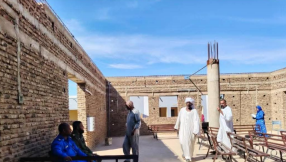
Pimps have gone digital with the emergence of online adult streaming platforms like OnlyFans and it is leading to the sexual exploitation of more women, a Christian advocacy group has warned.
CARE said it was concerned by new research from Dutch digital forensics company DataExpert which has identified a new trend in the OnlyFans era called 'e-pimping'.
Just as traditional pimps control prostitutes on the streets and their earnings, e-pimps are controlling some OnlyFans accounts behind the scenes.
DataExpert analyst Michelle Rasch told Dutch media outlet RTL News, "One of the terms we came across was e-pimp. That's basically an old-fashioned pimp, but online. They call themselves OnlyFans managers.
"There are e-pimps who don't keep their promises. They are pressuring their models to go further than initially agreed. Because the e-pimps have access to all accounts, they have sexually explicit material at their disposal with which they can blackmail the models."
She added: "A lot of people think of selling a slave when they hear the word human trafficking, but this kind of sexual exploitation on OnlyFans also falls under it. The e-pimps have way too much control."
CARE described the research as "troubling" and said it "adds to a growing body of evidence showing that OnlyFans is being used by criminals to exploit women".
The charity is calling for more to be done to protect women and girls.
"Expert analysis has highlighted 'e-pimping' and women forced into situations that would be categorised as modern slavery," said CARE policy officer Dr Rebecca Stevenson.
"Alarmingly, there appears to be little effort by OnlyFans to detect and prevent this kind of exploitation – there's simply too much content to monitor. Given the design of the platform, where content is behind a paywall, it is also difficult for authorities to investigate.
"As the UK government sets about making the internet a safer place through recently ratified online safety legislation, we urge ministers to examine this highly concerning issue. More must be done on behalf of women and girls at risk of harm."













